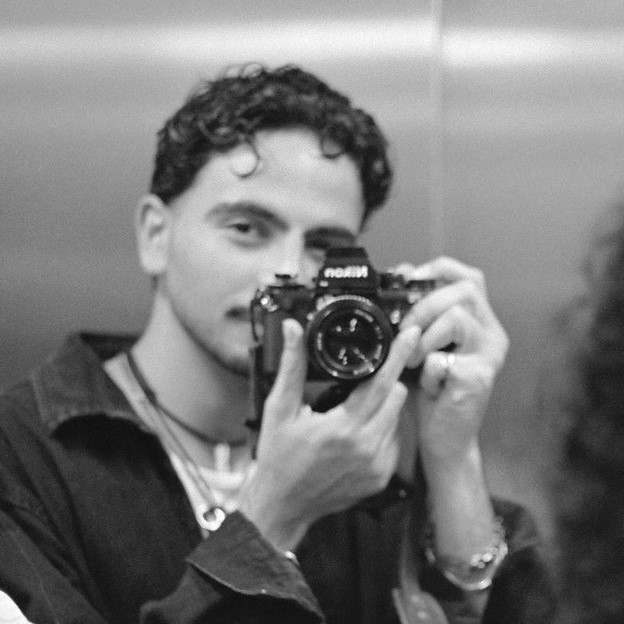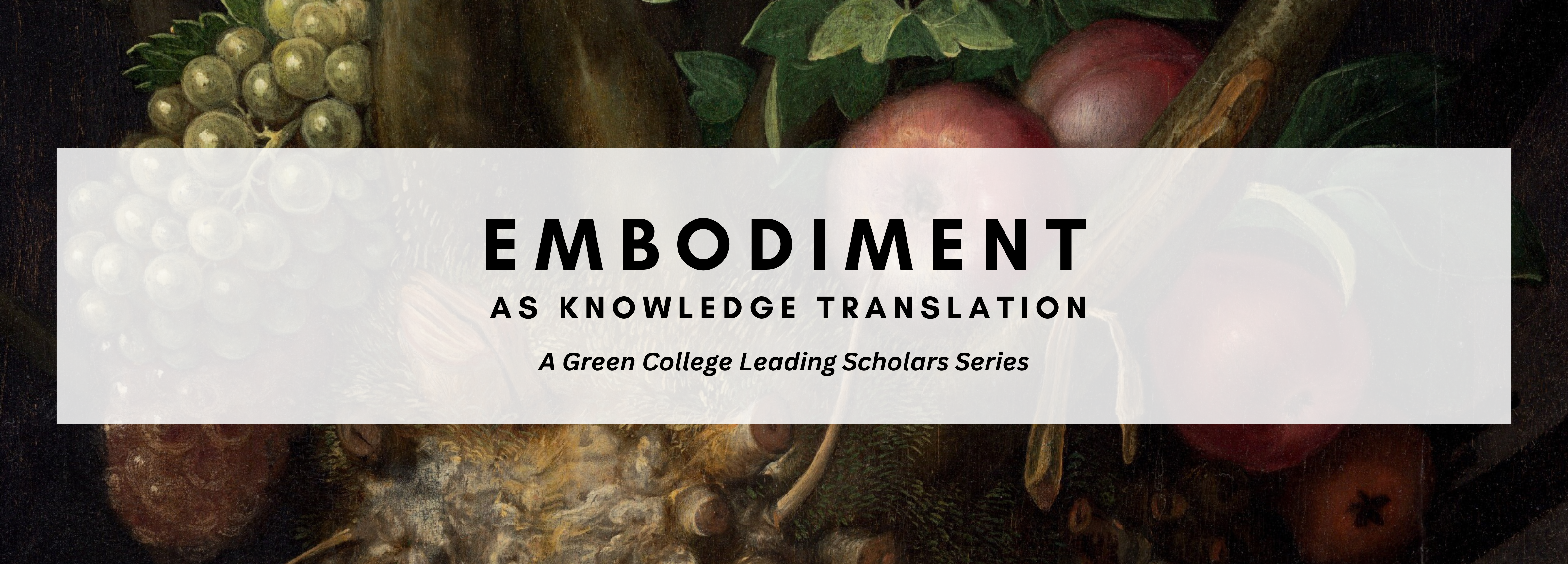What Can Cinema Do?
-
Sobhi al-Zobaidi, filmmaker, writer and researcher; and Rame Ibrahim, film director
Coach House, Green College, UBC
Thursday, April 11, 4:30-6:30 pm, with reception to followin the series
Embodiment as Knowledge Translation -
This evening showcases the extraordinary short films of two local Palestinian Canadian filmmakers, Sobhi Zobaidi and Rame Ibrahim. These works explore the embodied, lived experiences of Palestinians in Palestine and in the diaspora. As their films explore the questions around forced migration and ethnic cleansing, exile, refuge and genocidal war, we wish to pose the question, “what can cinema do?” during times of moral crisis, such as the present war on Gaza. As Zobaidi puts it succinctly: “for Palestinians, cinema can do a lot. It can take us to places and spaces that are otherwise unreachable.” In the words of George Khleifi and Nurith Gertz: “One of the best sources for understanding Palestinian culture is its cinema, which has devoted itself to serving the national struggle.” Furthermore, as we have witnessed the silencing and censorship of pro-Palestinian voices at prominent film festivals including the Berlinale, Red Sea Film Festival, IDFA and TIFF, we query the glaring double standards around expressions of solidarity for Palestine that have vexed these supposed sights/sites of free cinematic expression and their claims of inclusion, diversity and equity. As Ibrahim notes, “film has always been a form of political and artistic expression—and yet when it comes to the topic of Palestine, it becomes a mere form of entertainment which seemingly cannot hold a discussion for humanitarian values.” This evening is dedicated to the urgent questions around our moral responsibilities as embodied global film-viewers and citizens.
Please note the early start time for this event.
 Sobhi al-Zobaidi is a Palestinian filmmaker, writer and researcher in Palestinian and Arab cinemas. He studied Economics at Birzeit University in Palestine, and film production and cinema studies at NYU. Between 1994 and 2006 he produced and directed over 20 documentaries, short fiction and media installations. He published journalistic reviews and scholarly studies on Palestinian cinema, art and culture in English and Arabic. He taught film and visual media at Birzeit University, Al-Quds University, Capilano University and Simon Fraser University where he designed and taught a seminar on Arab cinema while studying there. He is also a lyricist who co-wrote the lyrics for Death of the Prophet by Sabreen, one of the best known musical albums to come out of Palestine. While living in Vancouver, Sobhi and his wife Tamam founded the restaurant Tamam: Fine Palestinian Cuisine, where they proudly put Palestinian cuisine on the culinary map of the city and the province.
Sobhi al-Zobaidi is a Palestinian filmmaker, writer and researcher in Palestinian and Arab cinemas. He studied Economics at Birzeit University in Palestine, and film production and cinema studies at NYU. Between 1994 and 2006 he produced and directed over 20 documentaries, short fiction and media installations. He published journalistic reviews and scholarly studies on Palestinian cinema, art and culture in English and Arabic. He taught film and visual media at Birzeit University, Al-Quds University, Capilano University and Simon Fraser University where he designed and taught a seminar on Arab cinema while studying there. He is also a lyricist who co-wrote the lyrics for Death of the Prophet by Sabreen, one of the best known musical albums to come out of Palestine. While living in Vancouver, Sobhi and his wife Tamam founded the restaurant Tamam: Fine Palestinian Cuisine, where they proudly put Palestinian cuisine on the culinary map of the city and the province. Rame Ibrahim is a Palestinian Canadian film director born in Syria. His film work explores his very rich background, having lived in many places around the world. He engages in topics like refuge, politics, freedom of speech, the Palestinian diaspora, etc. He studied his BA in Istanbul at Bahçeşehir University, where he produced, wrote and directed his first narrative short film, “Eid,” about his grandmother. His latest work, "Ahmed," which talks about the expectations refugees have from governing bodies, was selected by the New York Shorts Film Festival. He is currently working on his third short film, “Prisoner,” about intergenerational trauma as part of his thesis for his MFA degree in Film Production and Creative Writing at the University of British Columbia. He has received the full CGS-M SSHRC grant for his research and towards the production of “Prisoner.”
Rame Ibrahim is a Palestinian Canadian film director born in Syria. His film work explores his very rich background, having lived in many places around the world. He engages in topics like refuge, politics, freedom of speech, the Palestinian diaspora, etc. He studied his BA in Istanbul at Bahçeşehir University, where he produced, wrote and directed his first narrative short film, “Eid,” about his grandmother. His latest work, "Ahmed," which talks about the expectations refugees have from governing bodies, was selected by the New York Shorts Film Festival. He is currently working on his third short film, “Prisoner,” about intergenerational trauma as part of his thesis for his MFA degree in Film Production and Creative Writing at the University of British Columbia. He has received the full CGS-M SSHRC grant for his research and towards the production of “Prisoner.”
Organized by Green College Leading Scholars, this series invites perspectives on how to locate, understand, experience, enact and care for embodiment. How is the body activated as source and repository of knowledge? Where do we find generative inquiry into the affective and social dimensions of producing and exchanging knowledge? This series of lectures and roundtables explores the performance of care; relational accountability; and the emotional labour involved in archival work, storytelling, translation, healthcare, creative practices and teaching.
Series Conveners: Abdul-Fatawu Abdulai, Nursing; Irem Ayan, French, Hispanic and Italian Studies; Stephen Dabugblor, Journalism, Writing and Media; Julia Henderson, Occupational Science and Occupational Therapy; Sara Ann Knutson, History; Jillian Lerner, Art History, Visual Art and Theory; Jasmin Ma, Kinesiology; Elif Sari, Anthropology; Rosanne Sia, Gender, Race Sexuality and Social Justice; Logan Smilge, English Language and Literatures; Helena Zeweri, Anthropology; and Mila Zuo, Theatre and Film

-
Unless otherwise noted, all of our lectures are free to attend and do not require registration.
Custom Lecture Fields
|